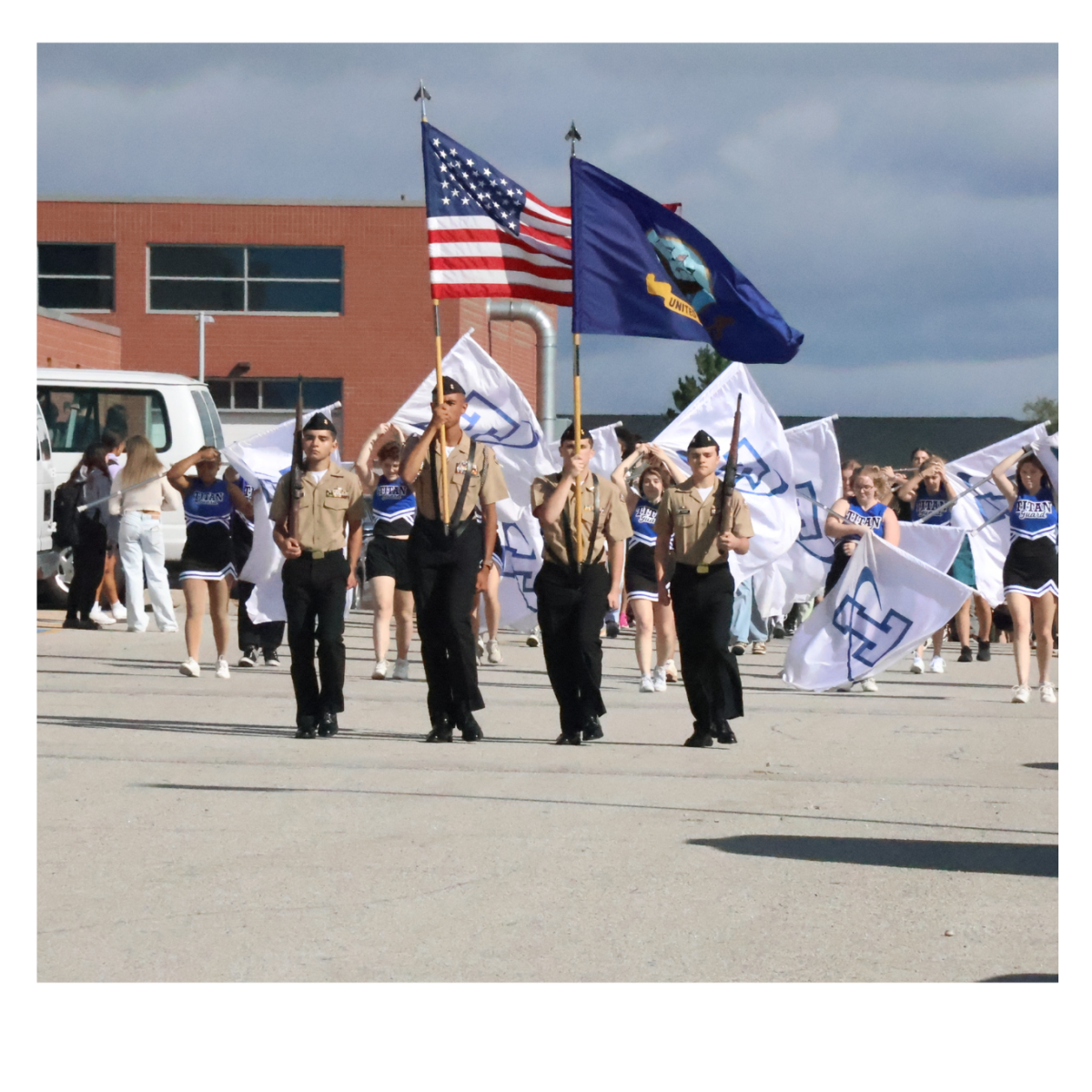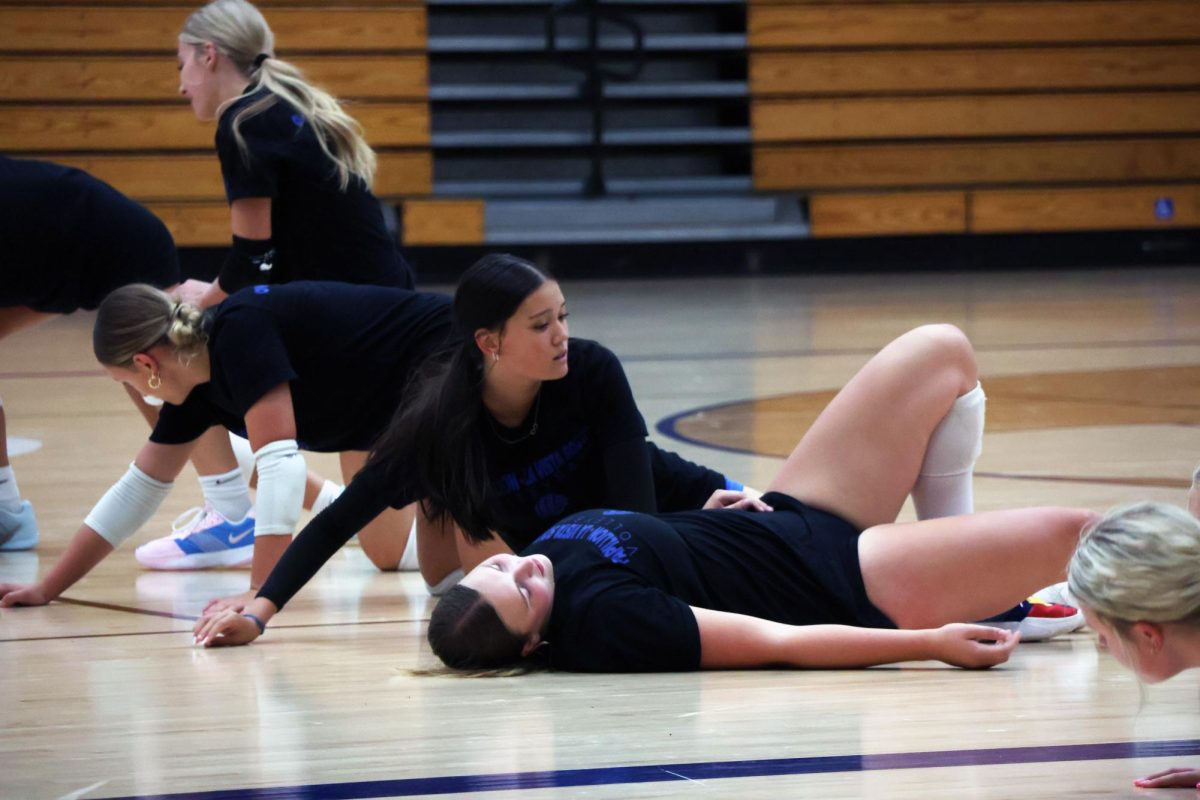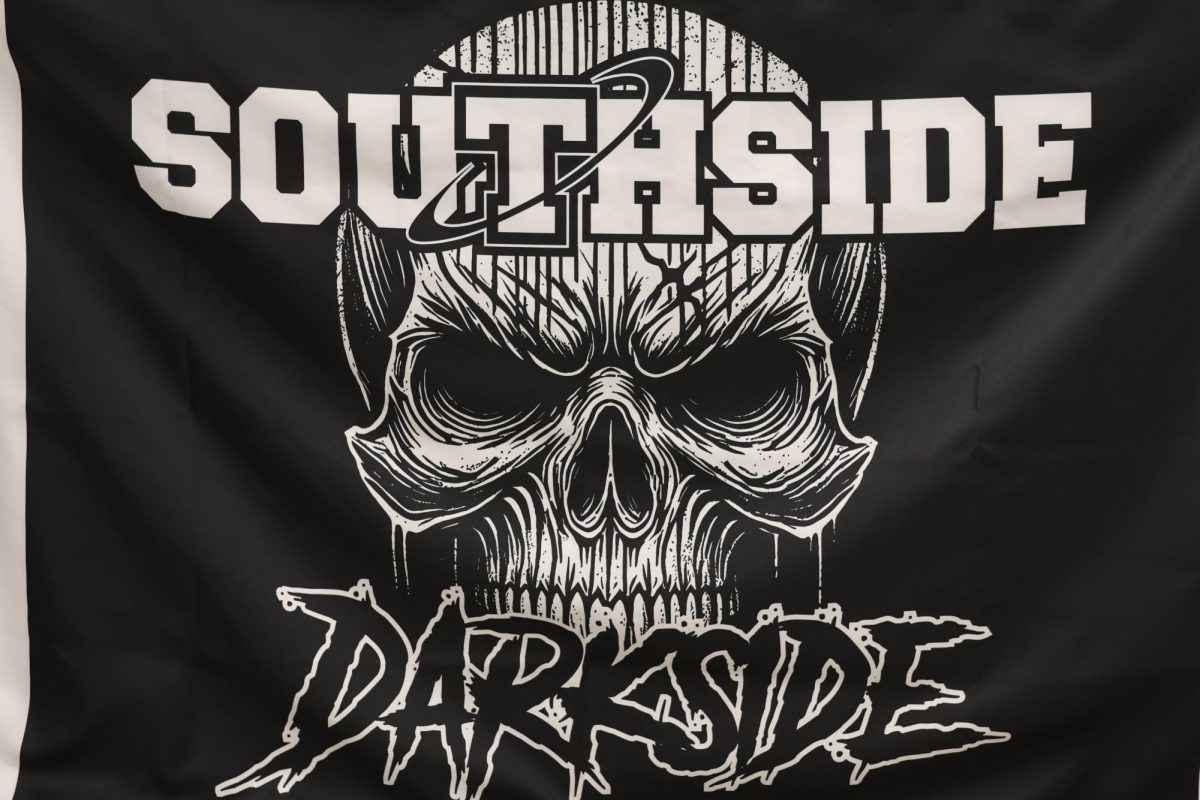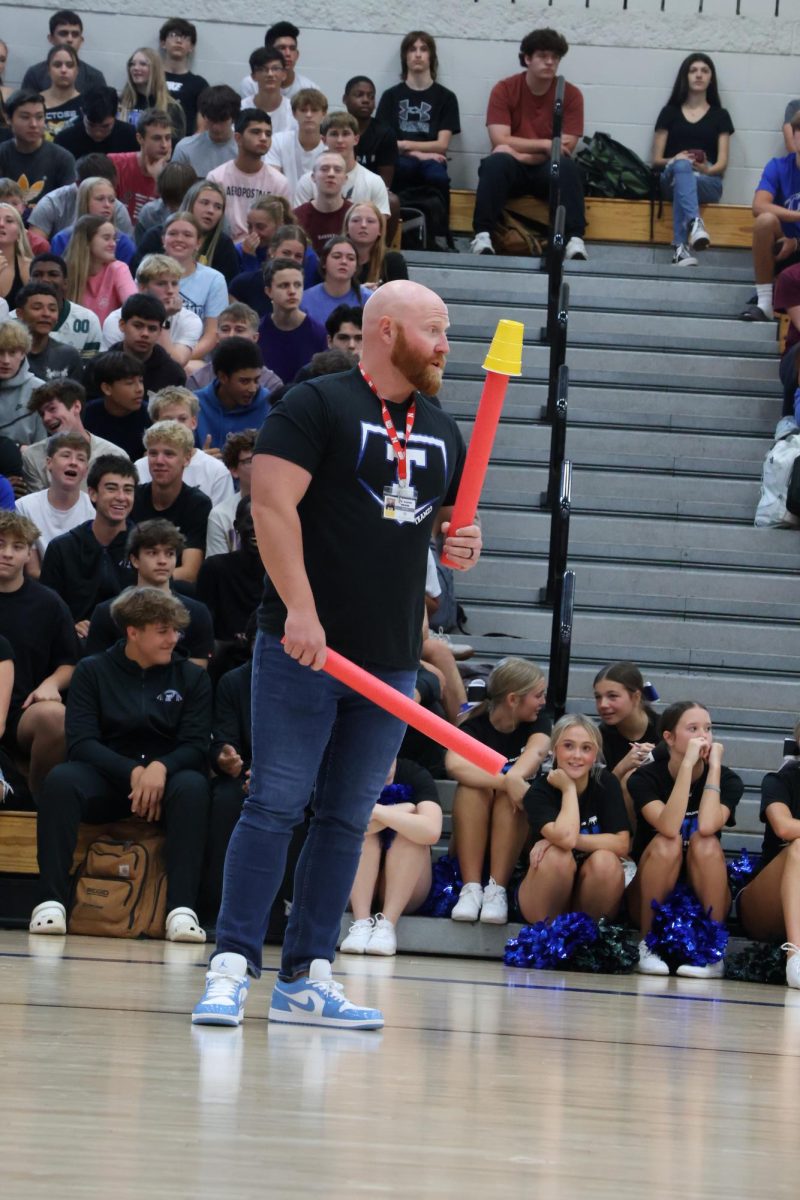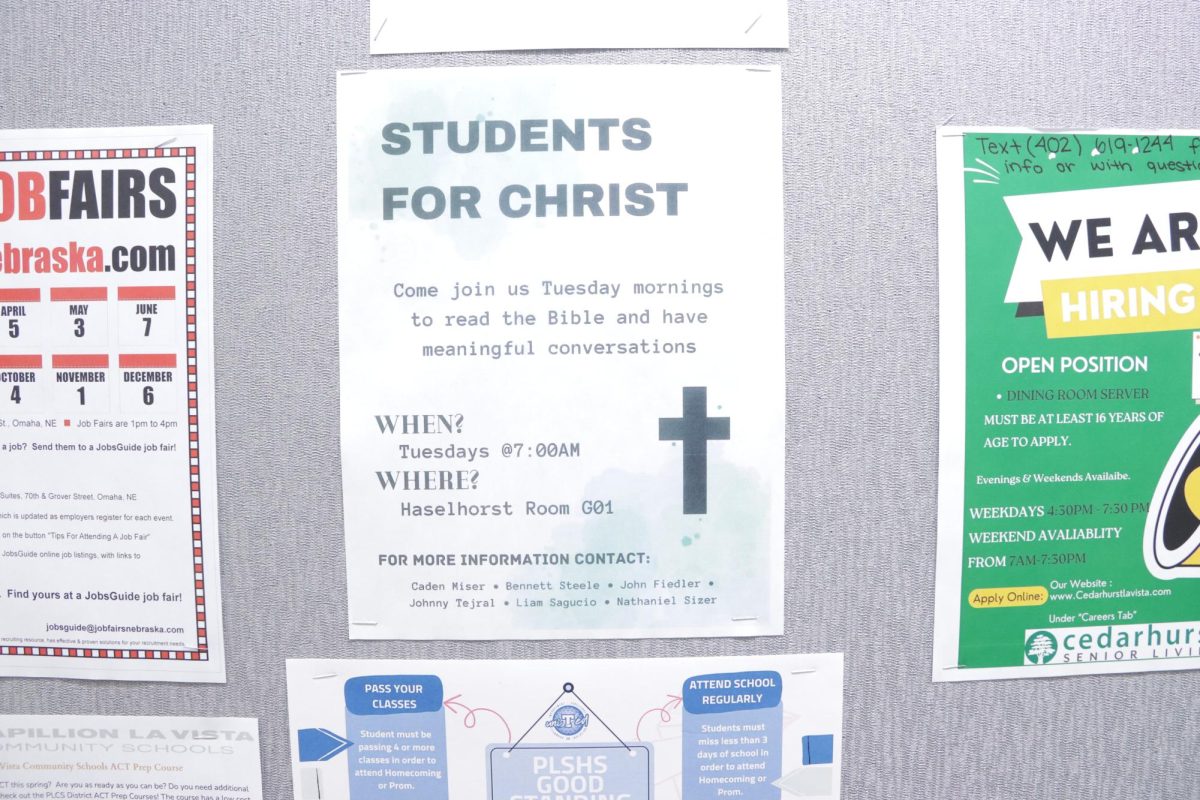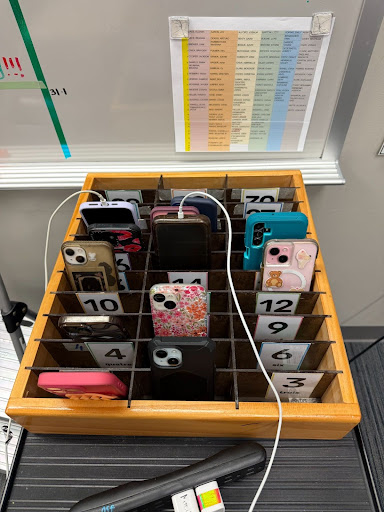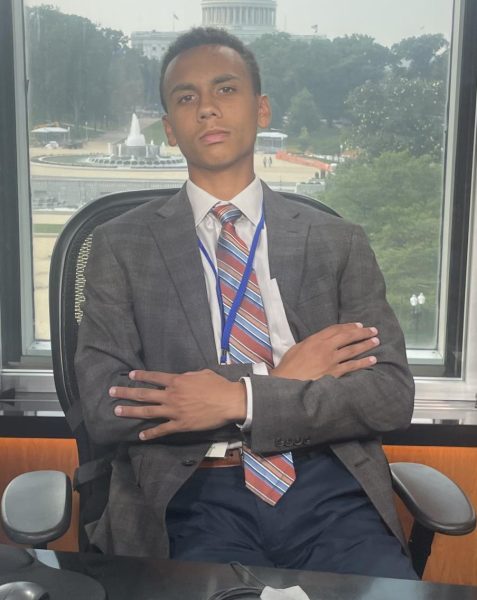Papio South is home to 46 school-sanctioned clubs, according to the school website. Not among those is Students For Christ, or SFC, a student-run Bible study group of approximately 30 students that was started last year and has been meeting every Tuesday morning this school year in room G01.
Senior Liam Sagucio, one of the founders of SFC, would like to hang fliers advertising SFC around the school, but the lack of an official staff sponsor means that SFC is not a school-affiliated club, even if its members do meet within the school.
Papillion La Vista Community School Board Policy 1408 restricts advertising access to non-school-affiliated groups in any district buildings. Principal Jeff Spilker says the community bulletin board, situated in Papio South’s main office, is the place for non-school groups to advertise.
“So for example, if Runza came to us … if they said, ‘We want to hire, can we put fliers all over your school with hiring?’ We would say, ‘Oh, that, that fits on the community board,’ because Runza is not directly affiliated with Papio South,” Spilker said.
Sagucio said he initially was given a different reason for denying SFC’s request to advertise in the halls: “because we were a religious affiliated club and … that would be a violation of the establishment clause.”
The establishment clause is a clause of the First Amendment that forbids an institution of government, including a public school, from creating a policy that establishes an official religion or gives favorable treatment to one religion over another.
Activities Director Jeremy Van Ackeren and Principal Jeff Spilker characterized the explanation differently while acknowledging that they want to be particularly careful when dealing with religious clubs.
“At that point that club can be a little controversial, just like Young Republicans or whatever it might be,” Van Ackeren said. “So that’s when I talked to Mr. Spilker, and asked, ‘OK, how do you want to handle this?’ Then it got to the point where we met as a group. [The students] met with Mr. Spilker as well,” Van Ackeren said.
Spilker said, “We do want to be extra careful with groups that could be of political nature, could be of a religious nature… Because there are guidelines we must follow.”
Sagucio and a group of other SFC members made up of seniors Nathaniel Sizer, John Fiedler, Rome Bridger, Cole Sievers and Seth Rowell, along with sophomore Eve Bridger, delivered a presentation to Spilker and Van Ackeren to argue for the right to advertise. The presentation was based on two legal precedents: the U.S. Supreme Court decision in the 1990 case Westside v. Mergens, and the Equal Access Act of 1984.
“A student at Westside High School (in Omaha) tried to start a Christian club, but [the school] said they couldn’t do that because it would violate the establishment clause.… The Supreme Court ruled 8 to 1 in favor of the student and said that a school cannot deny equal access to clubs on the basis of that club’s speech and religion,” Sagucio said. “We looked up the official U.S. Department of Education’s legal guidelines on what equal access was regarding the Equal Access Act.… Equal access does not only refer to the meeting space of a club but also to the advertisement of a club within a school.”
Legal guidelines published by the U.S. Department of Education clarify that equal access as defined in the Equal Access Act of 1984 refers to both “physical meeting spaces on school premises” and “the right to announce club meetings in the school newspaper, on bulletin boards, or over the public address system.”
Those legal guidelines do not specify that a “noncurriculum related student group,” or club, needs a staff sponsor in order to have equal access to means of advertising within the school. However, they do mention that “A school would violate the Act by, for example, requiring a gay-straight alliance to change its name, requiring it to have a faculty adviser when faculty advisers are not generally required for all other groups,” indicating that as long as faculty advisers are required for all clubs, the requirement is legally justified.
Sagucio said that SFC was never contesting the legality of the sponsor requirement, and based their presentation on non-discrimination toward religious student groups.
“The sponsor rule is legally acceptable,” Sagucio said. “[SFC] all agreed that the sponsorship requirement was totally lawful, but it took a few meetings for the school’s argument to change to that.”
SFC advertisements currently are limited to the community board and will remain there until they find a sponsor, which Spilker says is standard procedure for all clubs.
“If they find an official sponsor, if they have a staff member that will sponsor them, then we would go ahead and approve them to post signage around the building,” Spilker said. “I thought their presentation was very thoughtful.… But when it comes back to questions and their requests, that then comes back to: We are following board policies, and our board policies follow the law.”

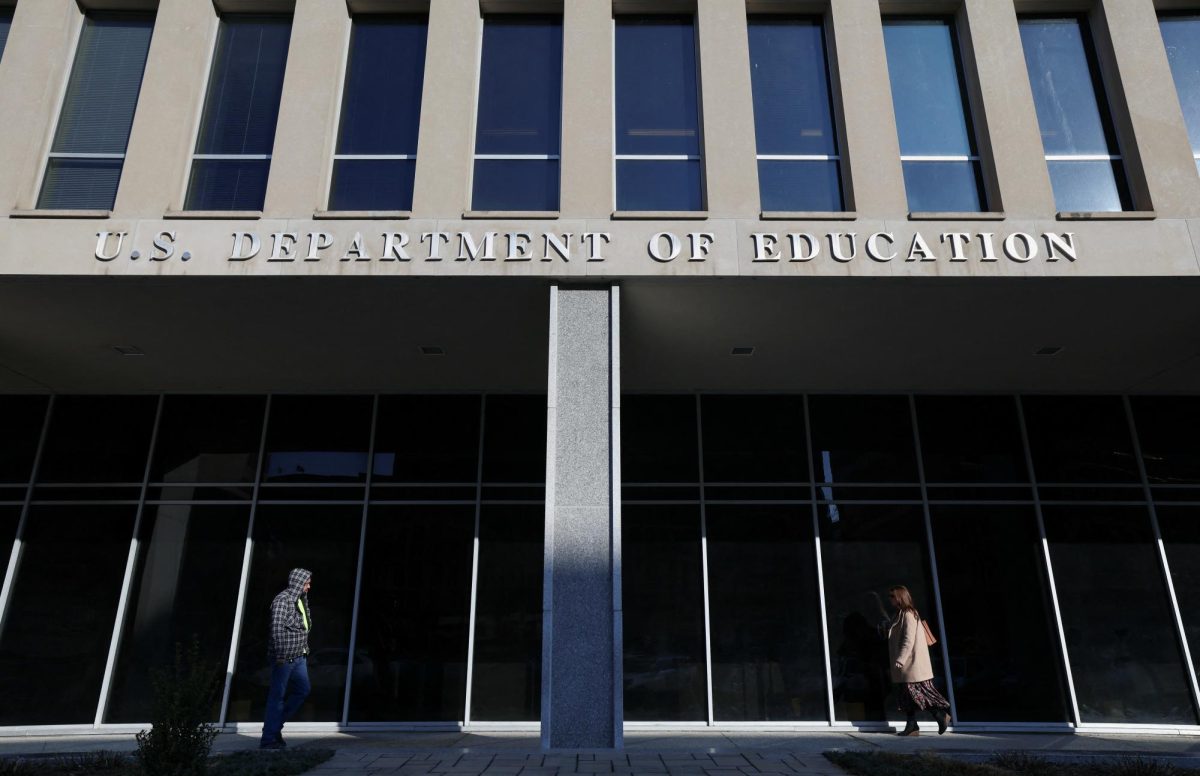
![Pictured above is a structure that displays the names of Nebraska Vietnam veterans in order to “honor [their] courage, sacrifice and devotion to duty and country.”](https://plsouthsidescroll.com/wp-content/uploads/2025/10/Trey_092625_0014-e1760030641144-1200x490.jpg)
